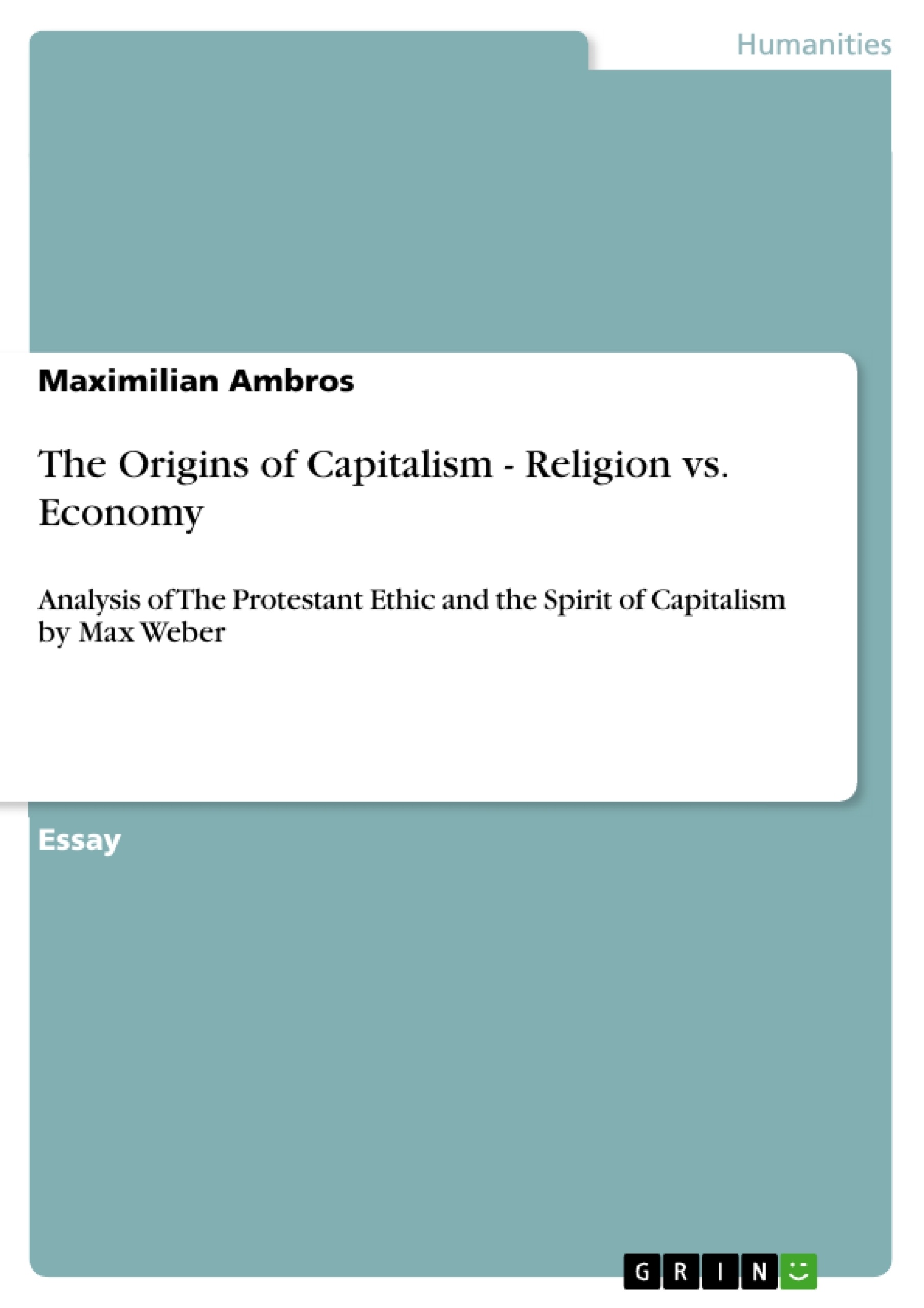Beginning with a more general definition of capitalism, I will make a distinction between different types of capitalism regarding the historical background.
After giving a historical outline on the origins of capitalism, Max Weber ́s Protestant Ethic and the Spirit of Capitalism is discussed. The question whether economy influences the religion or religion influences the economy is also part of the work. I will conclude that a mixture of historical background, technological improvements and a special work ethic led to the modern form of capitalism, which we can find in industrial countries.
Inhaltsverzeichnis (Table of Contents)
- Capitalism
- From agrarian capitalism to Financial Capitalism: The historical background
- Weber's motivation on the topic
- Weber's The Protestant Ethic and the Spirit of Capitalism
- Critique
Zielsetzung und Themenschwerpunkte (Objectives and Key Themes)
This text examines the origins of capitalism, focusing on the relationship between religion and economic development. It aims to analyze Max Weber's theory of the Protestant work ethic and its influence on the rise of modern capitalism, while also considering alternative perspectives.
- The evolution of capitalism from its agrarian roots to modern financial capitalism
- The role of Max Weber's Protestant Ethic in shaping the spirit of capitalism
- The debate on whether economic systems influence religion or vice versa
- Historical and social factors contributing to the rise of capitalism
- The contrasting viewpoints of Weber and Marx on the relationship between religion and economic development
Zusammenfassung der Kapitel (Chapter Summaries)
The text begins by providing a general definition of capitalism and outlining different types of capitalism throughout history. It then delves into the historical context of the rise of capitalism, tracing its origins from the feudal system to the Industrial Revolution. The text then discusses Max Weber's influential work "The Protestant Ethic and the Spirit of Capitalism," exploring his arguments on the connection between Protestantism, specifically Calvinism, and the emergence of modern capitalism.
The text concludes with a critique of Weber's theory, highlighting alternative perspectives and contrasting his ideas with those of other sociologists, such as Marx and Sombart. This section discusses the limitations of Weber's theory and examines the multifaceted nature of the relationship between religion and economic development.
Schlüsselwörter (Keywords)
The text focuses on the key concepts of capitalism, religion, economic development, historical context, Max Weber's Protestant Ethic, and the debate on the relationship between economic systems and religious beliefs. It explores themes of social change, work ethic, and the evolution of capitalism from its agrarian origins to its modern, financial form.
Frequently Asked Questions
What is Max Weber's main thesis regarding capitalism?
In "The Protestant Ethic and the Spirit of Capitalism," Max Weber argues that religious beliefs, specifically Calvinism and the resulting "Protestant work ethic," played a crucial role in the development of modern capitalism.
How does Weber's view differ from Karl Marx's view?
While Marx viewed religion as a product of economic conditions (the "opium of the people"), Weber explored the possibility that religious ideas could conversely influence economic systems and social change.
What are the different stages of capitalism discussed?
The text outlines the evolution of capitalism from its agrarian roots through the Industrial Revolution to modern financial capitalism, noting the historical and technological changes involved.
Does religion influence economy or vice versa?
This is a central debate in the work. The conclusion suggests that modern capitalism resulted from a mixture of historical background, technological improvements, and a specific work ethic influenced by religious values.
What is the significance of the "Spirit of Capitalism"?
The "spirit" refers to a set of values and attitudes, such as hard work, frugality, and the rational pursuit of profit, which Weber believed were necessary for the capitalist system to flourish.
- Citar trabajo
- Maximilian Ambros (Autor), 2012, The Origins of Capitalism - Religion vs. Economy, Múnich, GRIN Verlag, https://www.grin.com/document/194355



